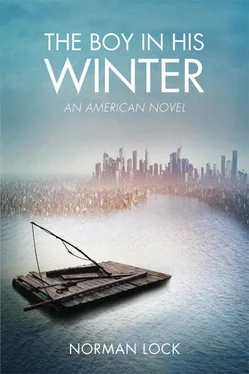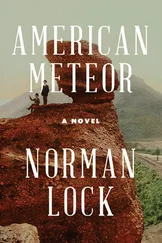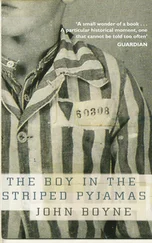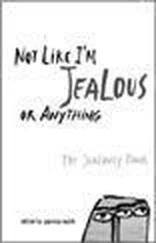James yelled to me. A shot was fired, another. I jumped over the side and slipped, nimble as a water rat, into the current. I let myself go into the dark and drifted noiselessly under stars aloof from the affairs of humankind. I crawled from the water up into the salt grass. In my hand, I clutched a brick of cannabis, wrapped in plastic. How I came to have it is a question I’ve yet to answer. The Connerys had set a brick aside to smoke on the trip home to Louisiana. With the money they made selling grass, Edgar planned to buy a fishing camp in the Delta; Edmund had something else in mind. Had I picked it up in my panic, or had James put it in my hand? So much hope and so much terror centered in a weed! Miss Watson had sworn by a cannabis extract manufactured by the Brothers Smith as a sovereign remedy for migraine. In the year of our Lord 2005, would she suffer her sick headaches or find someone in downtown Hannibal to sell her bud — a no-good shiftless boy perhaps?
The sun rose like an orange, having made its senseless round again. I knew in my bones that it did not rise for me. I walked along the shore of Great Bay toward the reddening horizon, for that was where the ocean was. On a grassy landing, I found a canoe whose aluminum form was made to look like bark. Whoever owned it was, no doubt, sleeping while the bleached blue air swirled and seeped into the house, invisible behind a stand of pines, whose scent reminded me of home. By “home,” I mean the place where I was happiest: childhood, my first on the Mississippi, 1,263 miles above the Gulf of Mexico — a world, like the first settlement at Roanoke, now peopled by the dead. The world is new for each of us in turn; that’s something we forget.
I took the canoe — a paddle had been left for me (by providence or by Jim, who may, in fact, be it) — and crossed a chain of little bays, over dead Indians’ bones picked clean in whispers, south to Brigantine, where I got a job, of sorts, taking tickets in a fun house, whose theme was pirates — their ship and treasure. And so does each point in our lives refer to something previous. I think this is what’s meant by déjà vu.
I sat inside a booth, unwinding pale blue tickets from a shrinking roll, and remembered how Tom Sawyer and I had heaved cardboard cutlasses at each other and how our childish hopes of finding treasure buried in the mud had been habitually dashed. (Once, we found the skeleton of a dog; the name on its collar was Duke.) Was it innocence or folly or an expression of the need to halt that made me show the roller coaster operator the brick of marijuana? Even now, so very many years later, I don’t know what was in my mind, if anything at all. The next day, I was cuffed, shoved into the backseat of a squad car, arraigned, and, shortly thereafter, sent to the New Jersey juvenile detention center in Elizabeth. I would stay inside its walls until I turned seventeen and was sent back into the world to begin my life anew.
PART THREE. September 12, 2005–March 15, 2077
A FERRY ON THE HOOGHLY RIVER, tributary of the Ganges, sank on a night more than forty years ago: One hundred and twenty souls were lost overboard. (The soul, Naveen later assured me, cannot be lost — not for Hindus — but will merge, in time, with the Absolute. I thought of Jim, his body traveling the waters of the earth toward some Nirvana.) I was in West Bengal, staying with Naveen and his wife, Raima. He’d offered to introduce me to the president of an investment firm, the friend of a friend of his, who was rich and restless. At the time, I was a broker for Chronos Yachts, living in Palm Beach. Naveen and Raima had taken me to dinner on the river at Konnagar, near the ferry ghat. The night was pleasant as I recall, and we’d taken a table outside on the pier. A university lecturer in Bengali history, Raima was haranguing me on British imperialism and Calcutta. She insisted on its Indian name: Kolkata. Her resentment was evident. I was embarrassed and avoided her eyes, pretending to study a bowl of yogurt, until she mentioned a Rudyard Kipling story entitled “An Unqualified Pilot.”
I thought of Mark Twain’s book about piloting a steamboat, Life on the Mississippi, and of my own long-past river journey. Maybe Hindus are right to believe in a great circle of existence. I said elsewhere that each point in my life seems to refer to an earlier one. Maybe it’s the same with the stories we tell.
A short while later — controversy silenced in favor of fried moong daal — a commotion stopped us in midcourse. Diners rushed to the end of the pier (night’s enchantment enhanced by twinkle lights) while a mob from the street descended on the ghat and, on the dark bank, pressed against the water’s edge. I trembled, hearing the desperate blasts of the ferry’s whistle before she rolled over — a stridency answered, in turn, by the sirens of nearby river traffic. I’m digressing, but digression is the soul of memory — which, at the moment, is my subject. I was fascinated by the big lights that swept the pitch-black river from shore and from the decks of rescue and firefighting boats, searching for the quick and the dead.
I see from your look, you think I’m heartless. You’re wrong. That night while we stood watching the lights search the water, I was upset. Upset is too ordinary a word for how I felt in the presence of so much movement and emotion centered on stillness and silence: the place where the boat went down. But this tragedy happened long ago and what is left to me — an old man nearing his own still and silent point — is the image of searchlights crisscrossing the night-blackened water. It’s a trope for memory. Like a brilliantly incandescent light, memory searches the darkness of the past for shapes and discovers them — haphazardly, if at all — one by one or in small, sad clusters: dim constellations of dead friends and loved ones, dead hopes and fruitless actions. Recollection is undone by vagaries of the heart, accident, the condition of our brains, livers, bowels. I worry that I haven’t remembered everything of importance. We can’t remember it all! There’d be no time left to live. But might not the searchlight roving my mind’s darkness have assigned a false priority to some things, distorted others, made certain aspects of the past grotesque? Time is running short. Let me finish this accounting with a few persistent memories, trusting in their authenticity and truth.
I HAVE NO WISH TO RELIVE the three pathetic years I spent under lock and key in the juvenile home, so called, at Elizabeth. First, there was nothing homelike about it; second, the inmates were too far lost to innocence, too sunk in grown-up vices to be considered juvenile. There is a third reason why this house of correction for scaled-down, small-time criminals is better left forgotten: Newark Bay. To be near it was an agony for a boy whose element and principal humor was water. When the air was heavy, I could smell it, although I had to root beneath complex odors of petroleum and — when the wind was in the southeast — landfill. Still, I sensed it and, like a caged animal, felt the energy coiled in muscles and tendons, seething to be discharged in motion. My heart was packed with an unassuageable desire to run, to swim, to take off my shoes and socks and wade. I promised myself I would never again be without open water, fresh or salt.
At first, they were inclined to doubt my story — the judge who sentenced me to the reformatory (to use a word fallen into disfavor, along with the notion of free will), the social worker, and the child psychologist. They didn’t believe I was Albert Barthelemy, a boy raised up near Bayou Saint Malo by an old waterman who gave me his name after he found me floating, like Moses, in a cane and palmetto-leaf basket. I stayed with Albert until Katrina drowned him on his boat in the middle of Greens Bayou. I told my warders I had no other memories, except those of a childhood spent either on the water with my pap or else alone in a shack perched on rough-hewn stilts above the flooding marsh. (It would have been still madder to tell them the story I’m telling you!) They could find no trace of me in the Plaquemines Parish records. Either I was lying or the warrants of my existence had been lost in the hurricane. Confusion reigned yet in the Delta, and in the end, it was convenient for all concerned to accept my version of the story of my life. My identity as Albert Barthelemy was later confirmed by the sacred institutions of the Social Security Administration and the Internal Revenue Service. It was for me an irrevocable divorce, and Huck Finn retreated into the world of fiction.
Читать дальше












